Gastropod looks at food through the lens of science and history.
Co-hosts Cynthia Graber and Nicola Twilley serve up a brand new episode every two weeks.
Co-hosts Cynthia Graber and Nicola Twilley serve up a brand new episode every two weeks.
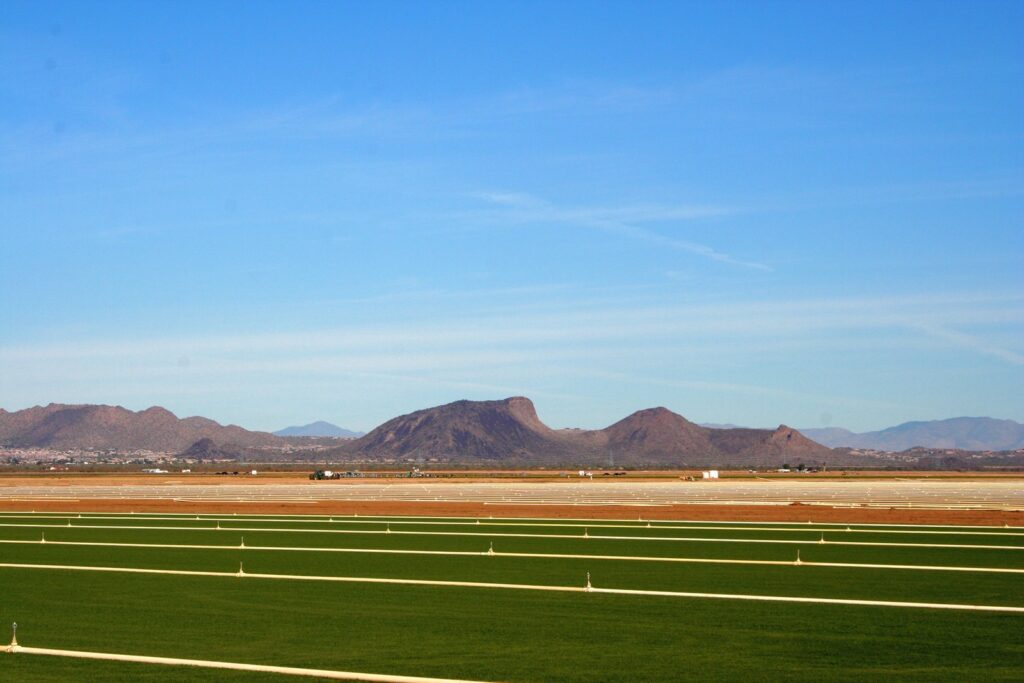
Here’s a behind-the-scenes look at the mesquite milling process you heard in the episode, with many thanks to Juliet Jivanti of the Borderlands Restoration Network for these photos and her help gathering sound.
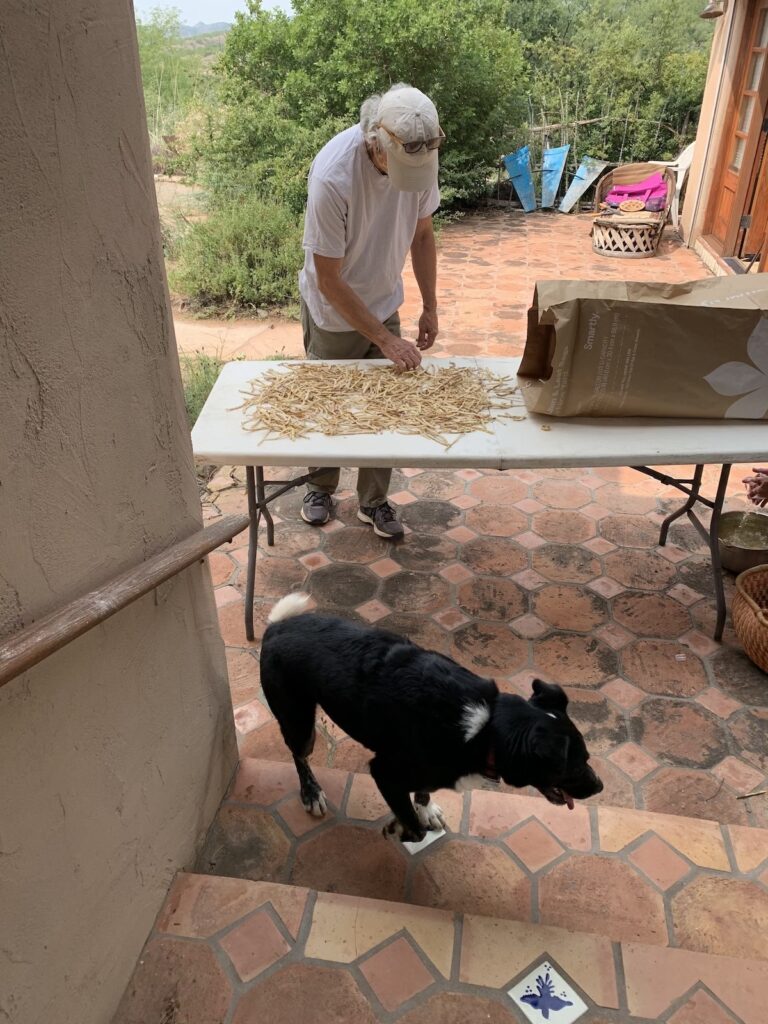
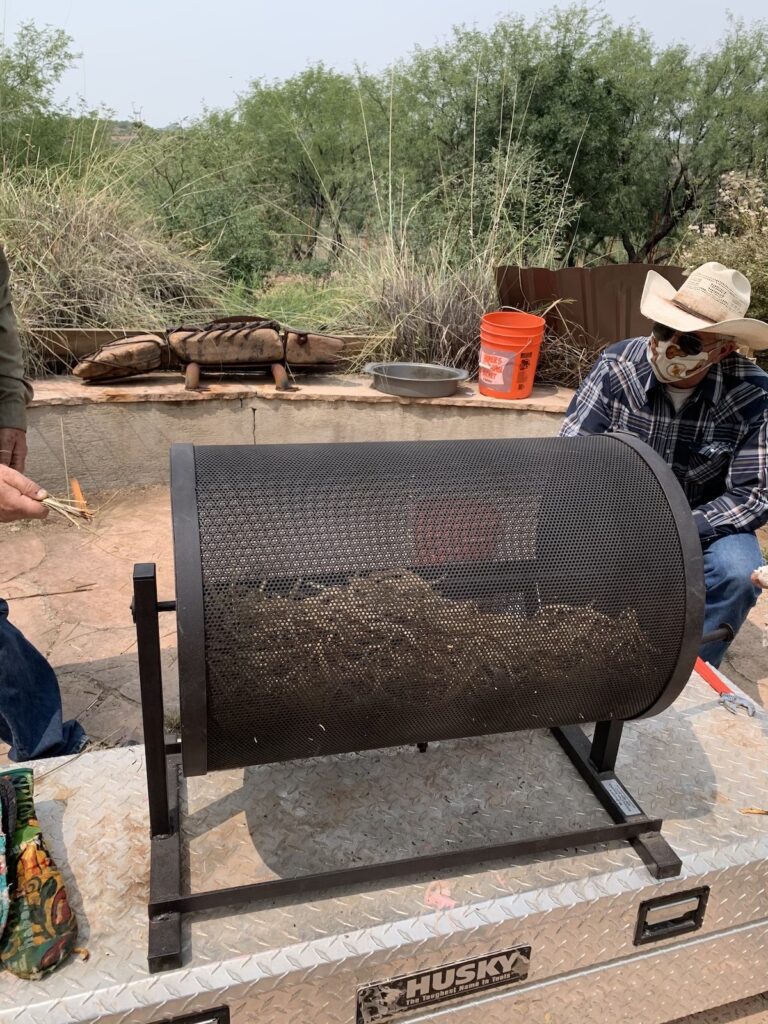
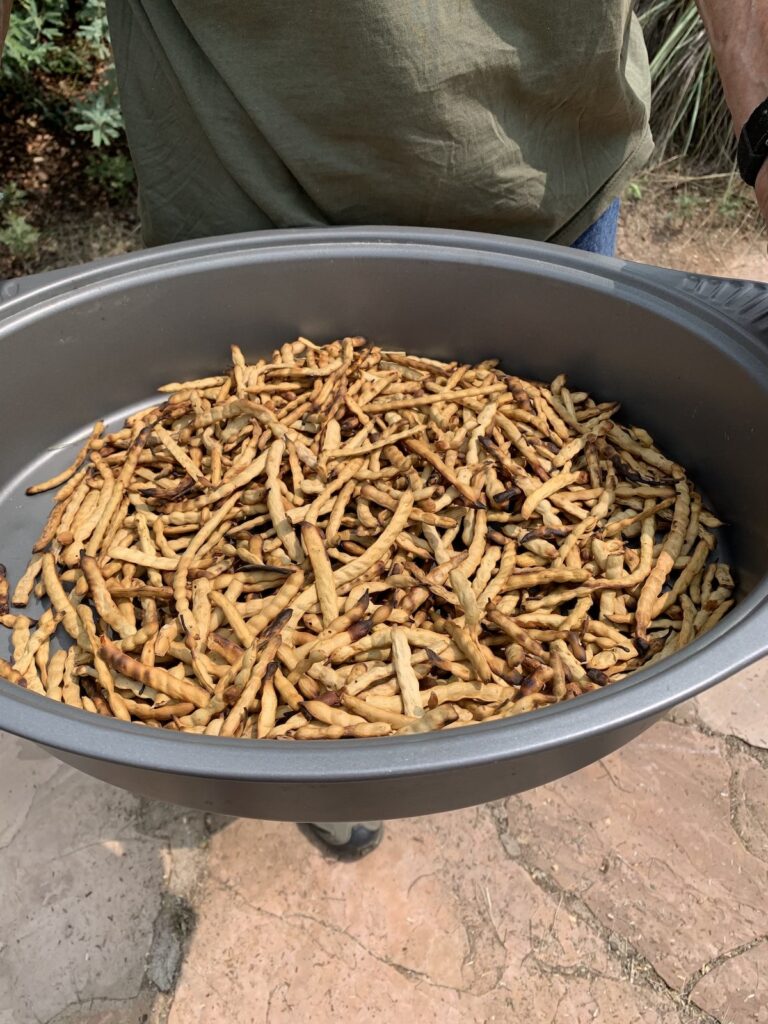
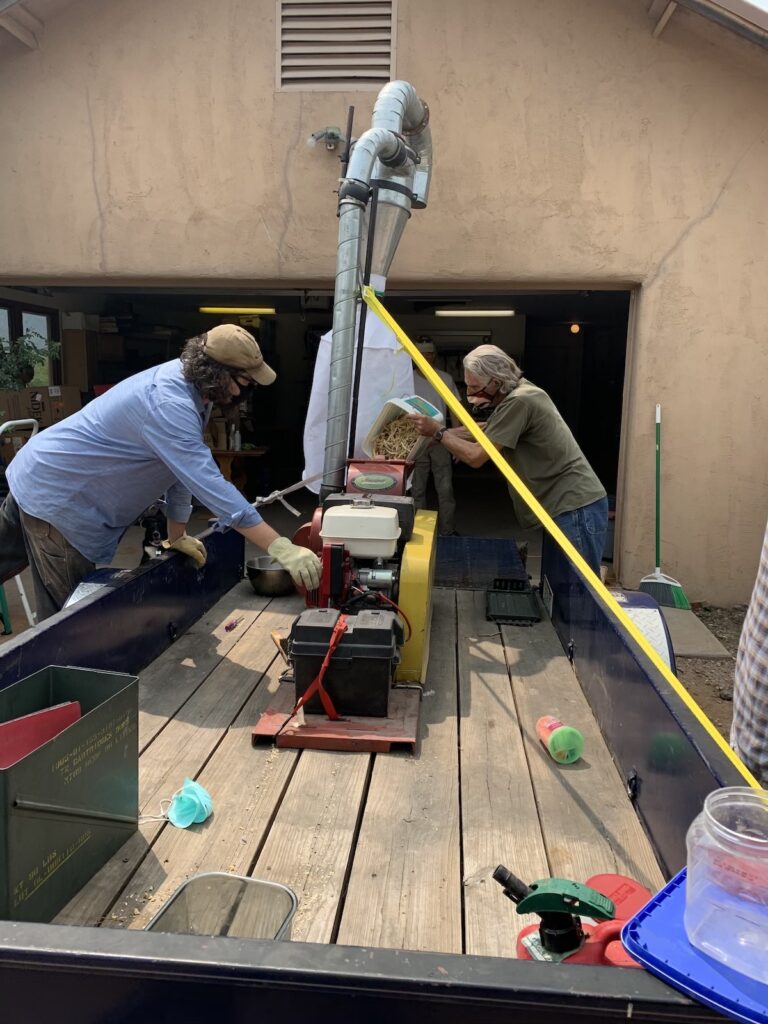
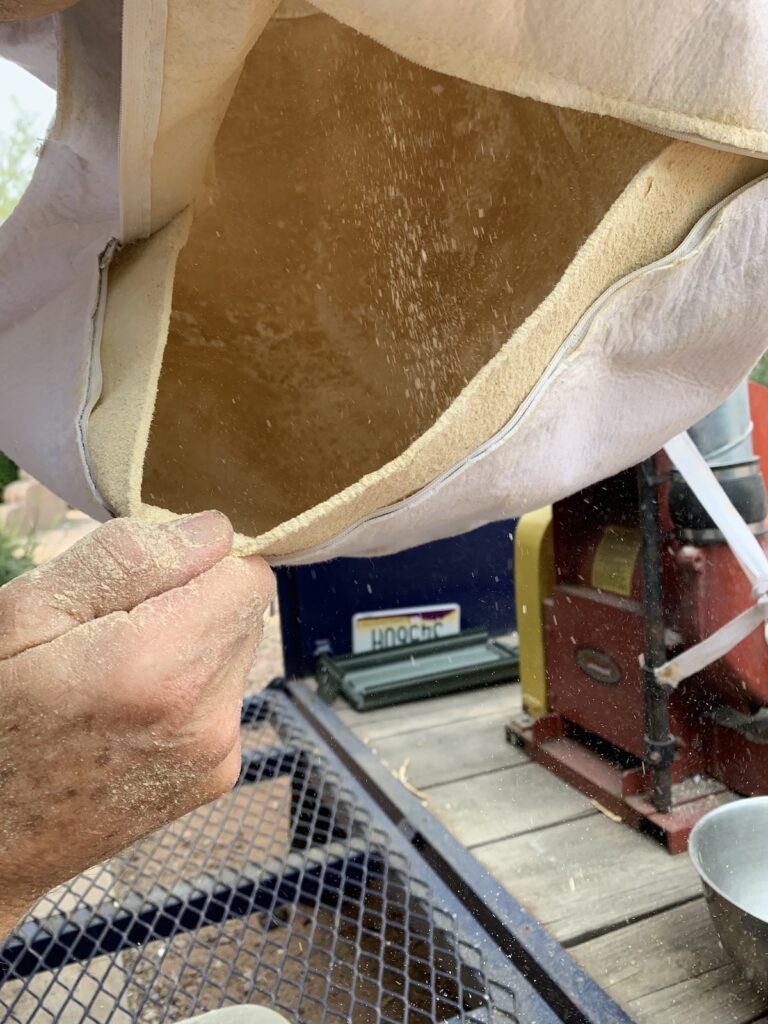
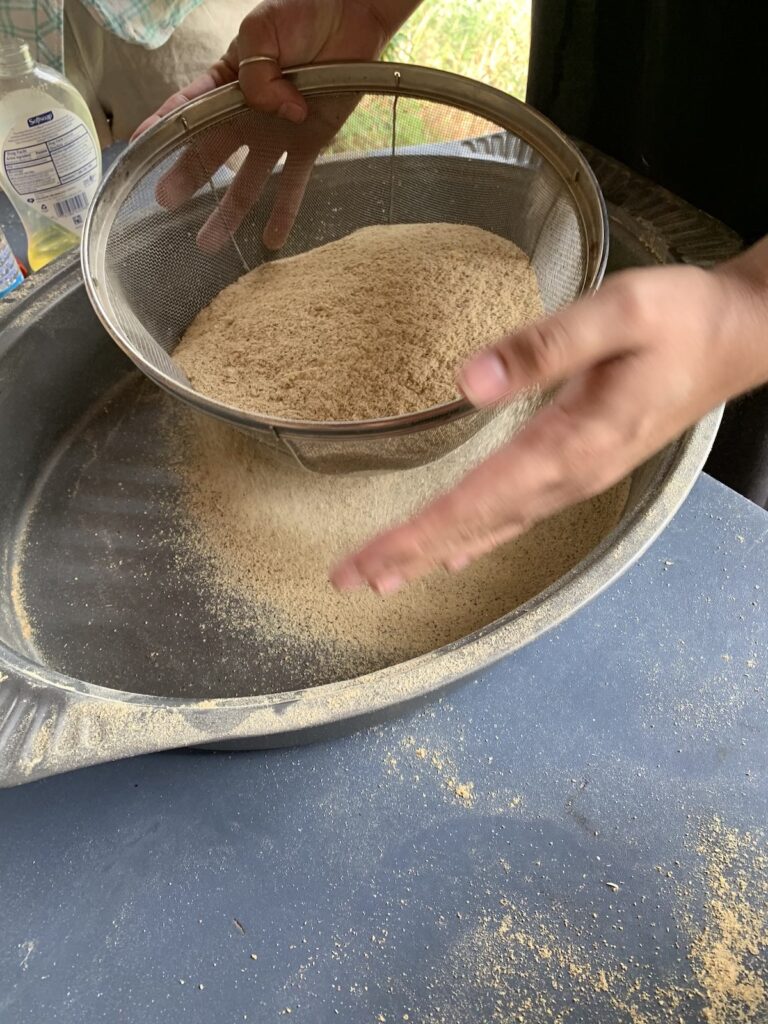
Where to buy tepary beans and other desert products: We got our tepary beans from Ramona Farms, which also sells heritage corn and wheat products. Our cholla buds and mesquite flour come from San Xavier Co-op Farm, run by members of the Tohono O’odham nation, and our prickly pear syrup comes from Native Seeds/SEARCH, a seed-saving non-profit.
Brad Lancaster is a permaculture designer known for his work in rainwater harvesting and water management. After years of covertly cutting curbs to redirect rainwater, Brad convinced the city of Tucson to pass an ordinance requiring new street projects to do the same. Brad is the co-founder of Neighborhood Foresters and Desert Harvesters and author of Rainwater Harvesting for Drylands and Beyond.
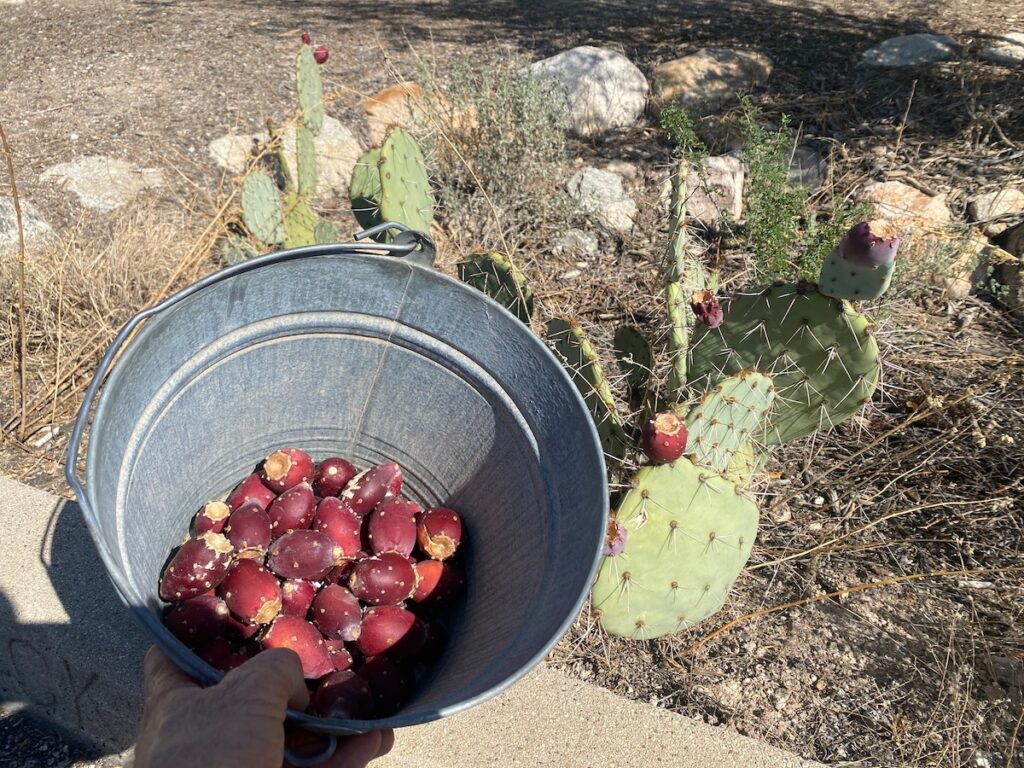
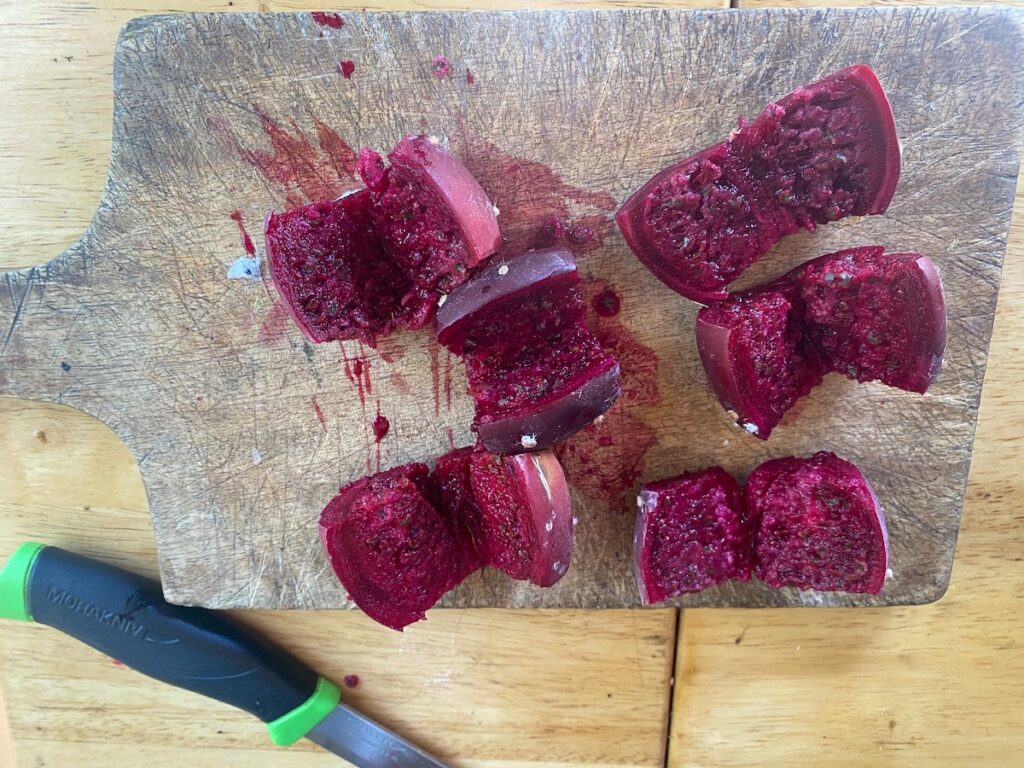
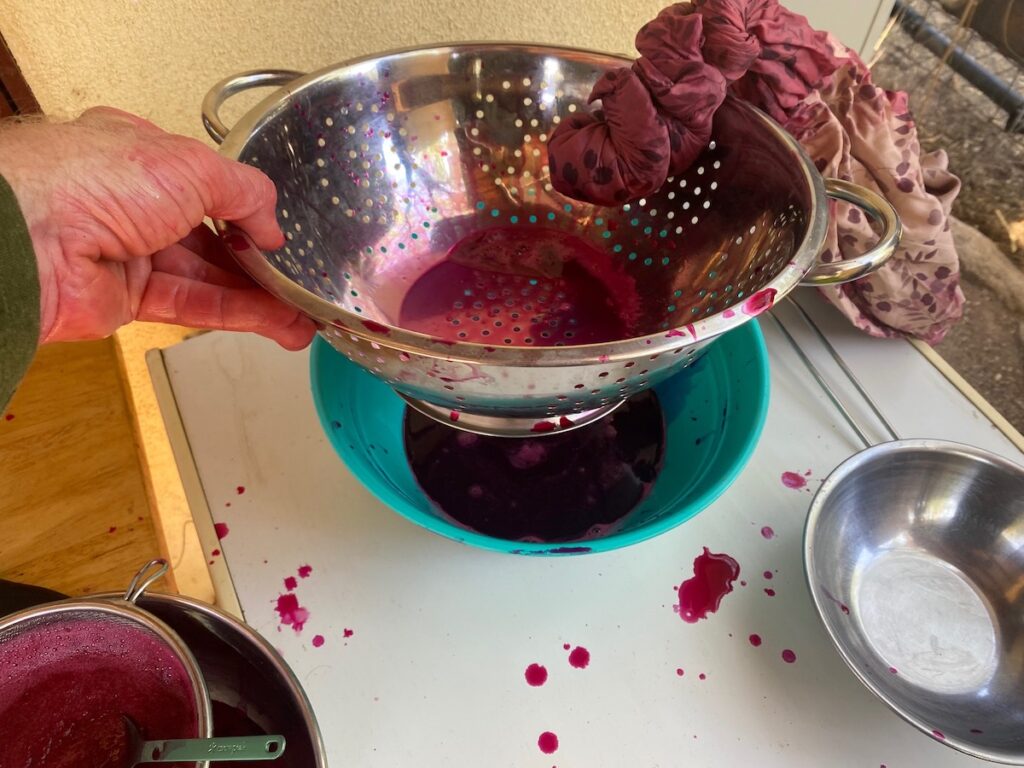
Ramona and Terry Button have been farming in the Gila River Basin since 1974, on the ancestral land of Ramona’s people, the Akimel O’odham. Through decades of work, they’ve helped revive the tepary bean and reintroduce it to the community. Their eldest daughter, Brandy Button, is a chef who travels with the family to schools and community centers teaching people about traditional Native American foods.
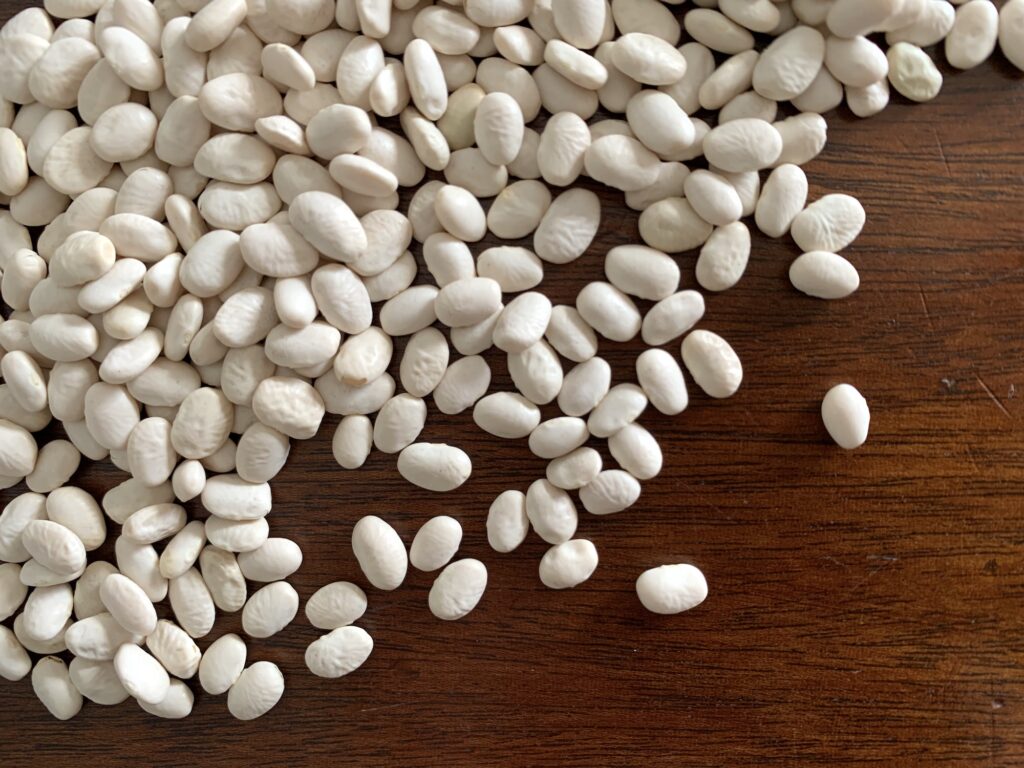
Gary Nabhan is a desert agroecologist celebrated for his work on the biodiversity and cultural diversity of the arid Southwest. He is a recipient of the MacArthur “Genius Grant” and author of 26 books, including Mesquite: An Arboreal Love Affair, and most recently, The Nature of Desert Nature. Gary co-founded the non-profit Native Seeds/SEARCH, which preserves and distributes indigenous seeds, and he tends a farm and orchard of desert-adapted fruit trees in Patagonia, Arizona.
Sterling Johnson and Nina Sajovec are partners who run the Ajo Center for Sustainable Agriculture. Sterling is a member of the Tohono O’odham nation and Ajo farm manager. Nina is the founder and executive director. Through the Ajo CSA, they preserve agriculture traditions like ak-chin irrigation, teach community members about traditional crops, and run a food pantry and farmer’s market.
Erick Meza is the farm education coordinator at Las Milpitas Community Farm, a six-acre space for residents of Tucson on the banks of the Santa Cruz River. Erick's immersion in desert agriculture started by accident with a small compost pile, which grew into an interest in permaculture and rainwater harvesting. Las Milpitas offers garden plots, supplies, and educational workshops at no cost to low-income families.
Sonja Swanson is our fabulous Gastropod fellow; she pitched this episode as part of her application for the fellowship. She lives in the Mojave Desert in Las Vegas, writes about food and culture, and was a 2019 recipient of the UC Berkeley Food and Farming Journalism fellowship.
Abe Sanchez is a founding member of the Chia Café Collective and co-publisher of Cooking the Native Way, a book of essays and recipes exploring the Native cuisines of Southern California.
Tilia Klebenov Jacobs is the super generous Gastropod listener who helped fund our reporting for this episode. She's also an award-winning writer and the author of two crime novels and one middle-grade fantasy book. Check out her books here!